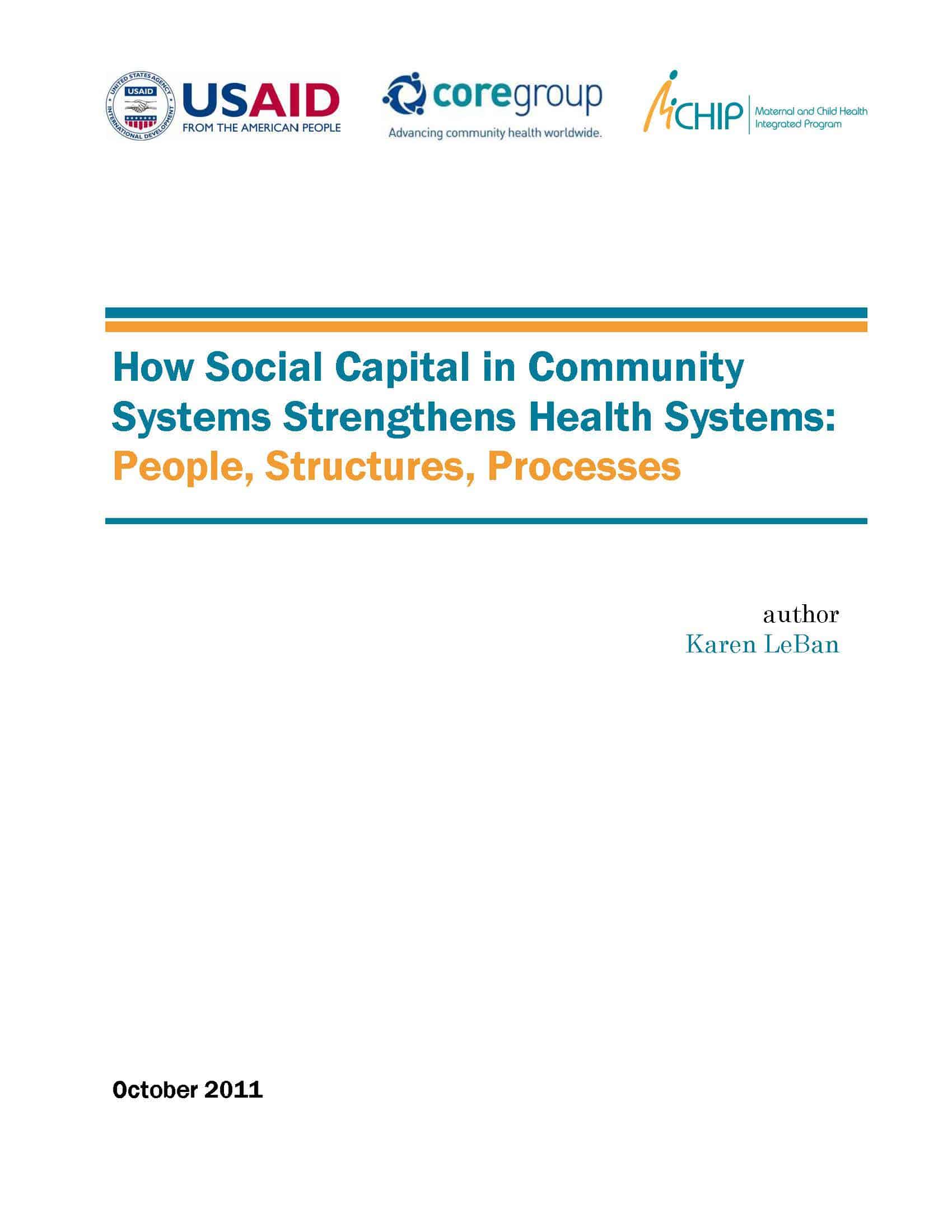ORGANIZATIONS
CORE Group
USAID
YEAR PUBLISHED
2011
DESCRIPTION
Communities play instrumental roles in improving health outcomes within the scope of national health systems. However, the role of the community in health system strengthening, as well as specific components of the community health sub-system itself have not been systematically documented. In this paper, we explore the relationship among the community, the community health sub-system and the national health system, and propose a set of actors, structures and processes critical for promoting positive health outcomes, especially in under-served areas.
The purpose of this document is to draw attention to the undervalued resources of a community in programming to improve health status for maternal and child health (MCH), infectious diseases, nutrition, family planning (FP) and chronic diseases. We apply a systems thinking lens to review the actors, structure and processes of community contexts where national health service systems interact with individual beneficiaries. In taking this approach, we identify links between the communities and national health systems and propose a set of key components comprising a community health sub-system that serves as the interface between community realities and health system elements, where health services, health workers, community dynamics and actors, and cultural norms and practices interact and promote improved health outcomes. In conclusion, we propose that the social capital within a community and between the community and the national health system actors is a critical element, perhaps a seventh building block of a highly functioning health system, which needs strengthening and further research.

